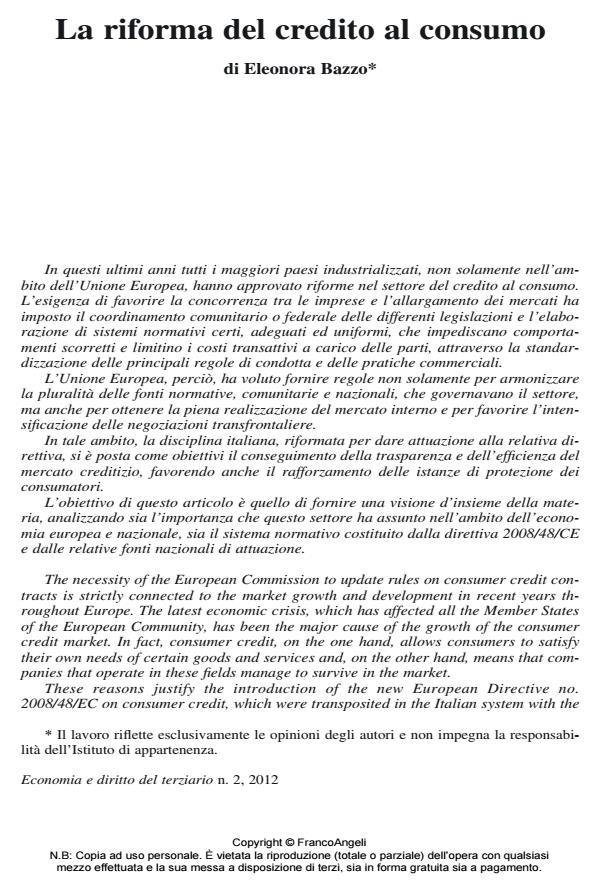La riforma del credito al consumo
Journal title ECONOMIA E DIRITTO DEL TERZIARIO
Author/s Eleonora Bazzo
Publishing Year 2012 Issue 2012/2
Language Italian Pages 24 P. 197-220 File size 140 KB
DOI 10.3280/ED2012-002003
DOI is like a bar code for intellectual property: to have more infomation
click here
Below, you can see the article first page
If you want to buy this article in PDF format, you can do it, following the instructions to buy download credits

FrancoAngeli is member of Publishers International Linking Association, Inc (PILA), a not-for-profit association which run the CrossRef service enabling links to and from online scholarly content.
The necessity of the European Commission to update rules on consumer credit contracts is strictly connected to the market growth and development in recent years throughout Europe. The latest economic crisis, which has affected all the Member States of the European Community, has been the major cause of the growth of the consumer credit market. In fact, consumer credit, on the one hand, allows consumers to satisfy their own needs of certain goods and services and, on the other hand, means that companies that operate in these fields manage to survive in the market. These reasons justify the introduction of the new European Directive no. 2008/48/EC on consumer credit, which were transposited in the Italian system with the Legislative Decree no. 141/2010 that officially came into force on 19 September 2010. This measure aligns Italy to the correspondent European discipline and has also been the opportunity to organize financial institutions and their powers, to rule the topic of microcredit and to redesign roles and access to professions of independent brokers and business agents. The goal of this article is to analyze the procedural and substantive changes introducted by this Legislative Decree, according to the importance that the topic of consumer credit has risen in these last years, both for consumers and institutions. In this new system, consumers have the right of reconsideration during the pre-contractual phase and the application of negotiation connection improves their bargaining power. On the opposite, supermarkets and chain stores are banned to promote revolving credit cards, a specific treatment is granted to the ius variandi in credit agreements and there is a reorganization of selective requirements of financial companies and of their supervision system
Eleonora Bazzo, La riforma del credito al consumo in "ECONOMIA E DIRITTO DEL TERZIARIO " 2/2012, pp 197-220, DOI: 10.3280/ED2012-002003